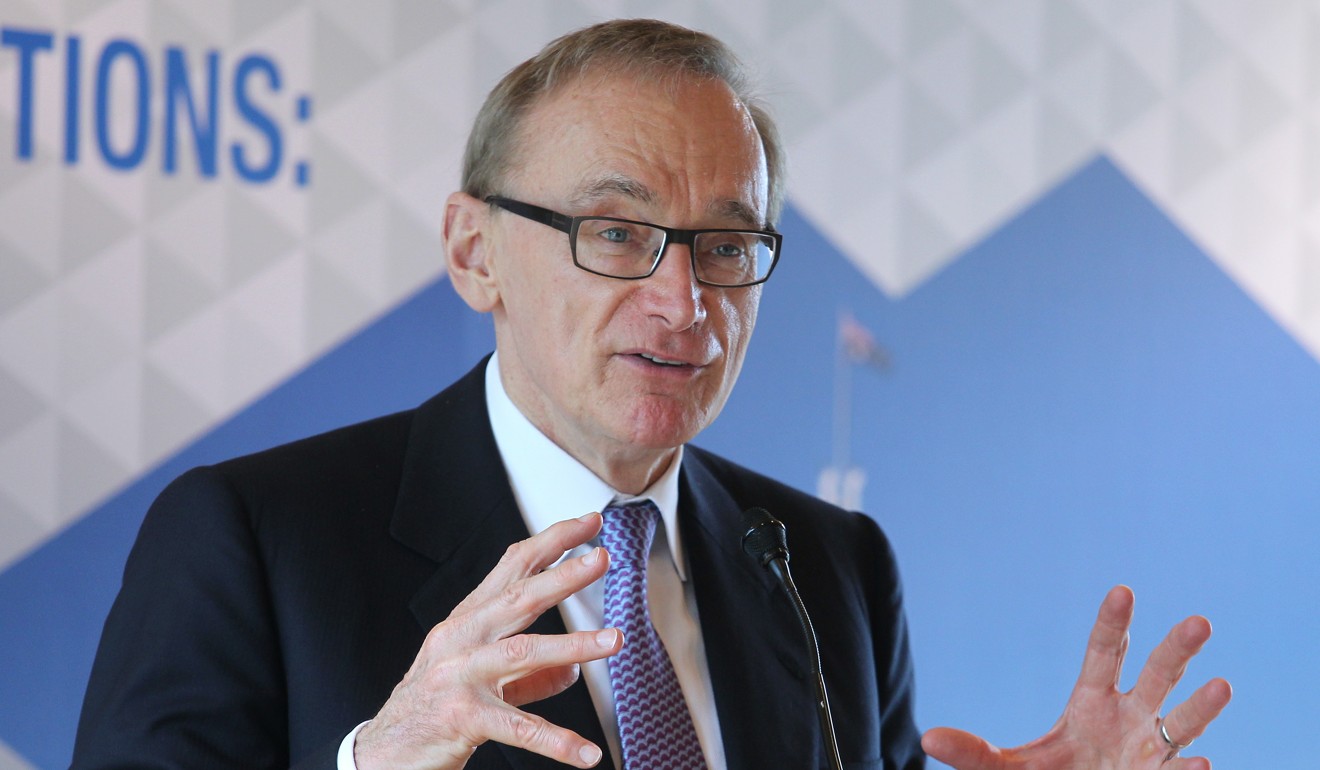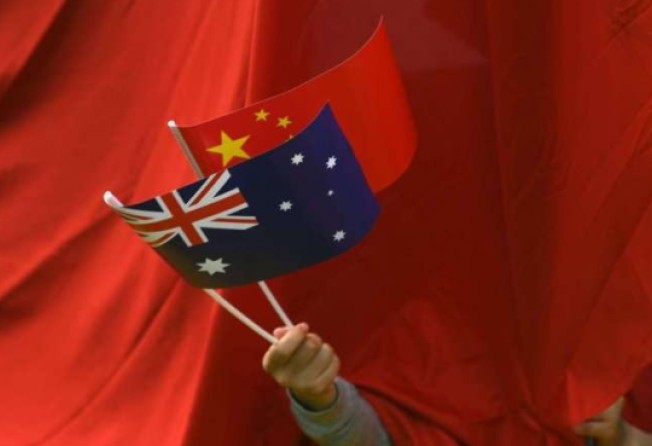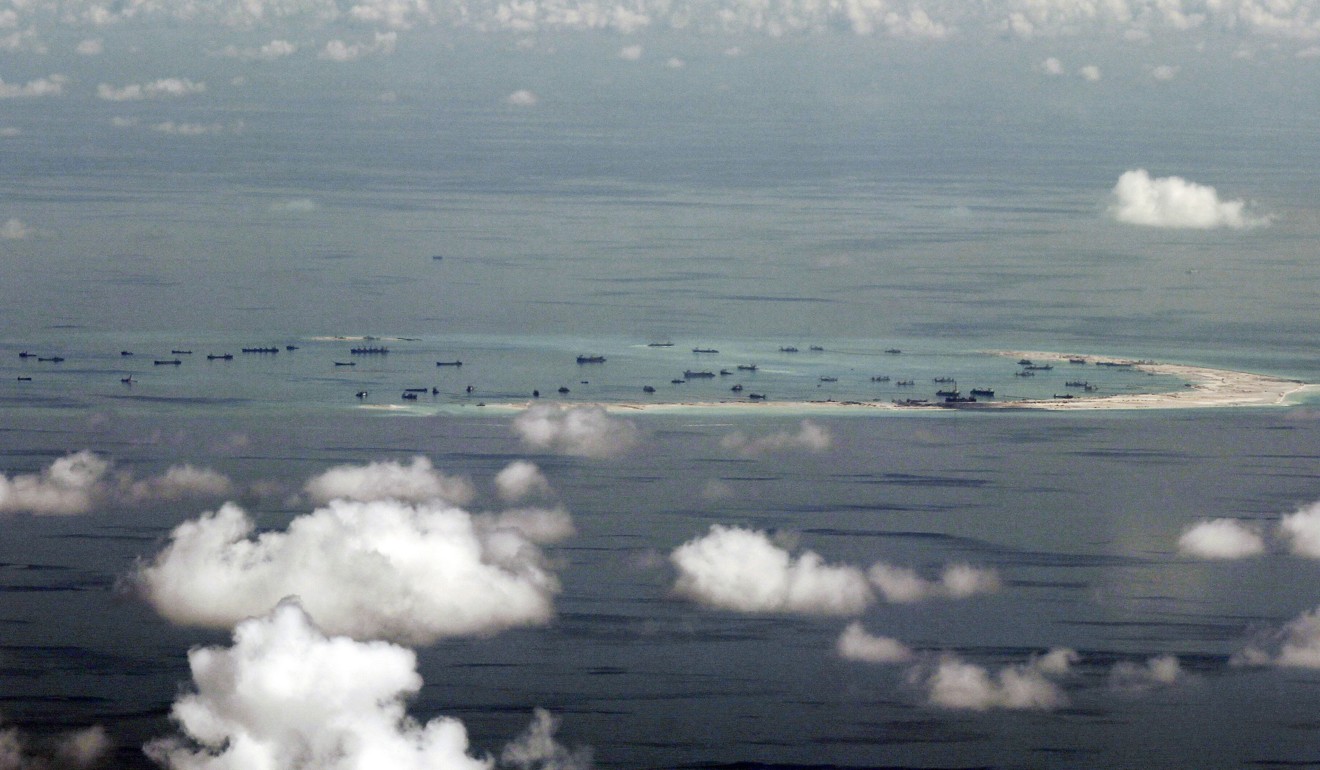
Australia warned over ‘siding against’ China in security group
Former Australian foreign minister Bob Carr says his nation should remain neutral and not be viewed as trying to ‘contain’ China in alliance with US, India and Japan

A former Australian foreign minister has warned over his country siding against China in a security grouping with the United States, India and Japan.
Bob Carr said Australia should remain neutral and not be viewed as trying to “contain” China.
Prospects for a security coalition between Washington, Tokyo, Canberra and New Delhi gathered steam after officials from the four countries met in Manila last month for the first time for what is known as the Quadrilateral Security Dialogue, or “Quad”.
The four nations did not mention China, but analysts say the grouping is partly a regional response to counter a stronger and more assertive China.
“Australia is the only one of the four countries that is not the strategic rival of China,” Carr, who was Australia’s foreign minister from 2012 to 2013, said on the sidelines of the World Internet Conference in Wuzhen in China.

Carr said the Quad might push Australia into a position to “side with” India and Japan in their border and maritime disputes with China.
“That is not in Australia’s interests. We are neutral,” said Carr, who is now the director of the Australia-China Relations Institute at the University of Technology Sydney.
His comments come after the Australian government released a foreign policy white paper last month that criticised Beijing’s island-building in disputed areas of the South China Sea. It recommended Canberra take a tougher stance against Beijing’s territorial claims and called for stronger engagement with Washington to ward off security risks to Australia in the Indo-Pacific region.
China criticised the white paper, saying Australia was not a party to South China Sea disputes and it should halt “irresponsible” remarks.
The idea of the Quad was firstly raised by Japan in 2007, but Australia and India hesitated to take part initially, wary of how it would affect their relations with China. Concerns about Beijing’s rising geopolitical influence and more assertive diplomacy appear to have changed their minds.
Beijing has warned that any move towards a security grouping should not target or damage a third party’s interests, saying regional cooperation should not be politicised nor exclusionary.
Australian media reported on Sunday that the grouping said at the meeting in Manila that the Asian Development Bank and the World Bank should bolster infrastructure lending across the region to counter China’s increasing influence.

India, however, was not interested in being treated as a lever by the US to contain China, according to McConnell. “The US-India relationship has its own challenges such as the US-Pakistan relations,” he said.
Stephen Orlins, president of the National Committee on US-China Relations, agreed. He said India “has little interest in cooperation” and follows its own foreign policy. “With China’s rising economic power, it will have more areas of disagreement with countries far away from its borders,” he said.
Australian Prime Minister Malcolm Turnbull strained relations with China in June, saying it should respect the sovereignty of other nations in disputed waters in the South China Sea. Australian officials have also publicly warned about Beijing’s growing influence and “interference” on university campuses.
Australia said in March it would not have any formal tie-up between its state infrastructure fund and China’s “Belt and Road Initiative”, an international trade and infrastructure drive.
Carr said Australia’s stance on China’s strategy might change if it “sees specific concrete deals in investment proposals rather than generalised policy statements”.